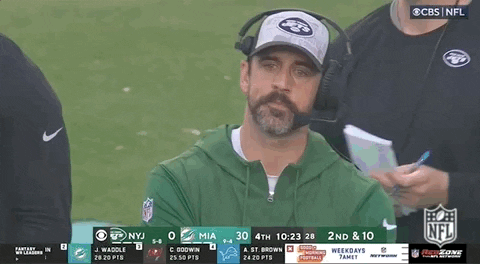- Unrelenting Progress
- Posts
- [UP 036] - 6 ways to keep the peace this festive season
[UP 036] - 6 ways to keep the peace this festive season
PLUS how to tell if you're REALLY hungry
“Chestnuts roasting on an open fire…”
(7 days but who’s counting right?! And bonus points for knowing the song)
How’s December going so far? Finishing strong I hope.
It’s #036 of UP.
Here’s what we have for you this week:
🛠️ Craft Devotion: Inspired by a baseball legend’s incredible discipline, we delve into the idea of true devotion to our crafts to reach mastery.
🍽️ Seven Hungers: We’ll explore the world of mindful eating by understanding the seven types of hunger and how they affect our food choices.
🤝 Keep ATTUNE: We’ll learn a new method to enhance communication and empathy, especially useful during the festive season's diverse conversations.
Let’s go ho ho ho! (Sorry)
Craft Devotion

When you realize the hobby might just solve everyone's birthday present dilemma forever.
“Are you playing when you work? If not how can you?
Because if it feels like work, it’s going to feel heavy.
And sooner or later you’re going to want to put that heavy load down.”
This was one of the main takeaways I had after reading the powerful opening of Ryan Holiday's "Discipline is Destiny."
In classic Holiday style, he opens this book with a profile from a notable person and in this book he starts with the astonishing career of Lou Gehrig, the legendary NY Yankees baseball player.

During his time he racked up impressive numbers but for me none more so than playing an astounding 2,130 consecutive games.
Just to make sure you got that…
That’s two thousand, one hundred and thirty games. In a row.
His consistently high levels of performance speak volumes of his discipline. But it's the deeper story of his attitude toward his craft that truly inspires.
Described as a 'slave to baseball,' Gehrig's approach was less about the pursuit of prestige or the paycheck and more about a spiritual devotion to the game.
His teammate once said, "Fitness is like a religion to him," and Gehrig himself expressed his love for baseball as grateful, willing servitude.
This mindset enabled him to endure over the seasons, even with injuries that would have sidelined others.
X-rays revealed he played through at least 17 healed fractures in his hand without mentioning it to anyone.
As well as this we learn that after being struck to the head with a near-fatal blow from a pitch, he came back the following day to play, and not just play, but hit a triple. Three times. (Yeah that’s very impressive for us non-baseball people)
All just to show his body who’s boss so he was quoted!
Overall from Gehrig's story, we learn the power of devoting ourselves to our craft fully to a level where it’s a spiritual-like experience.
It's about finding joy in practice, work, and training, seeing them as play.
Naval Ravikant's notion of 'doing what feels like play to you but looks like work to others' resonates here. True dedication stems from a deep, intrinsic love for what you do.
So I invite you to ask yourself: How can I cultivate a similar devotee-like attitude towards my own pursuits?
Where are we treating our required processes more like work or a chore with an attitude of “I have to do this”?
What would we need to believe to be instead driven by gratitude and an attitude of “I get to do this”?
Remember, it's usually not innate talent but the volume of practice that leads to greatness or even just that level of powerful mastery we seek.
And that volume won’t come easy if it’s not driven by a deep passion.
During your downtime this season, spend a little time finding where you can embrace your craft with a heart full of love and dedication.
At least that way, the journey to mastery won’t feel so heavy.
Speaking on which, let’s see how we can make sure we don’t get too heavy this season by learning of the different hunger cues we all fall for.
Seven Hungers

My hunger if it could speak
So far, the Noom program (yes still going strong) has been a great investment.
Today I wanted to share a nice framework around hunger that I came across recently from the course, based on Jan Chozen-Bays, MD's 'Mindful Eating.'
Having this knowledge can help us make wiser eating choices which makes all the difference when it comes to progressing steadily (unrelentingly!) towards our ideal weight and body composition.
So let’s explore the ‘Seven Types of Hunger’:
Eye Hunger
What it is: When the eyes are bigger than our belly. That’s these moments.
This is when we're naturally drawn to visually appealing foods – think of how a gourmet dish entices you versus a less appealing presentation.
Action: Really look at your food and appreciate its appearance before eating. Take a simple meal but arrange it beautifully on your plate and notice the difference it makes.
Nose Hunger
What it is: Ever feel yourself with more room to eat when you smell something delicious?
Our sense of smell greatly influences our taste experience. And yes eating isn’t the same when you have a cold. Lack of smell is why!
Action: Take a moment to smell your food before you eat. Inhale the aroma of your coffee or the scent of fresh bread and see how it enhances your meal.
Mouth Hunger
What it is: This is all about what we’ve downloaded down the years.
Our taste preferences, shaped by culture and upbringing can dictate what we find delicious.
Action: Pay attention to the taste and texture of your food as you eat. Try a new cuisine or even dial back your emphasis on taste and notice how your perception of flavor and texture varies.
Stomach Hunger
What it is: That rumbling we all know too well. Often like clockwork at certain times in the day right?
Yes it’s the feeling of hunger in our stomach, but it’s not always a sign of the need for food.
Action: Listen to your stomach. Is it actual hunger or just routine? Try waiting a bit when you feel hungry and observe the sensations.
Cellular Hunger
What it is: Real hunger. This hunger is about your body’s need for nutrients, but it’s often hard to detect.
Action: Be mindful of what your body is craving. Do you feel low on energy? Maybe your body needs more fruit or vegetables.
Mind Hunger
What it is: Influenced by diet trends and nutritional advice, this hunger is more about what we think we should eat rather than actual need.
Action: Eat mindfully, away from distractions. Ask yourself, are you eating this because you really want to, or because it’s “healthy” according to the latest trend?
Heart Hunger
What it is: Emotional eating, where we eat to satisfy emotional needs rather than physical hunger. We’ve all been here.
Action: Next time you crave a snack, pause and reflect on your emotions. Maybe a chat with a friend or a short walk could be more satisfying than food. Change your state rather than eat some emotional calories.
So what do you think? Reckon you’re falling a little too much for one hunger over the other?
By understanding these different types of hunger, we can make more mindful, healthier choices about our eating not just this busy festive period but into 2024 and beyond.
Now, let’s look at how to make our time together with distant relatives a little more peaceful.
Keep ATTUNE

When Auntie starts talking about the YT shorts she’s been watching for the third time this weekend
"No one is smart enough to be 100% wrong."
It’s a funny sentence when you first hear it but when you unpack there’s a lot of truth to it.
As we navigate the festive season, filled with gatherings and diverse opinions on issues big, small, and completely irrelevant (like if ‘Die Hard’ is a Christmas movie, even though it came out in July. Doesn’t matter. It’s SET IN CHRISTMAS)
(deep breaths)…it's essential to remember the wide spectrum of perspectives that exist.
Everyone has a piece of the truth in their narrative, and it's our job to respect and understand where they're coming from if we want to have richer connections.
Life, after all, is more shades of grey than stark black and white.
For the most part we probably know this, but when emotions get the better of us, we can become tribal and fail to see others’ points of view instead opting to beat ‘opponents’ (distant cousins with ‘bad’ opinions) into submission.
Before we get here though, I’ve found a framework that can help us bring us back into harmony with those around us (even if they still keep insisting on their disproven conspiracy theory being true).
Let's borrow from relationship expert John Gottman's concept of attunement, an acronym that guides us in building and maintaining trust in our interactions.
Understanding Attunement:
Awareness: Be fully present. Notice the subtle cues in conversations. For example, if someone hesitates while speaking about a sensitive topic, they might be seeking understanding or support. Listen, don’t just hear the words.
Turn Toward: Show you're engaged. Nod, make eye contact, or lean in when someone is talking to you about their day, even if the topic doesn't initially interest you. It’s just a great way to show you care about them as a person.
Tolerance: Accept differing views. When a family member shares an opinion that contrasts with yours, try to listen without judgment and acknowledge their perspective. Come ready and prepared to open yourself up to things that may irritate you. Good. Here’s a chance to increase your irritation tolerance.
Understand: Strive to truly get where others are coming from. Ask open-ended questions to get to the heart of why your friend believes in a particular cause so passionately. At the same time, know when to back off!
Non-defensive: Respond, don't react. If someone criticizes your viewpoint, take a deep breath and reply calmly instead of getting defensive. “Thanks for raising the point of the summer release of the movie.” Yes it’s hard to not sound like you’re being passive-aggressive.
Empathy: Show genuine empathy. If someone is expressing frustration or disappointment, respond with phrases like "That sounds really tough; I can see why you feel that way."
By practicing attunement in our interactions, we can foster deeper connections and understanding, making the festive period a more harmonious and enriching experience for everyone involved.
Remember, it's not about agreeing with everyone; it's about appreciating the richness of diverse perspectives and finding common ground.
(Like if they won’t put ‘Die Hard’ in your top 5 Christmas movies list, can they settle with ‘Home Alone’??)
***
Thanks for reading and being a subscriber. Little longer one today, hope you don’t mind it.
If this was forwarded to you, you can subscribe here.
I’m gonna go and prepare my train myself to catch my hunger cues as I start taking on Christmas food shopping/ cooking duties.
See you next week.
Always Forward,
Utkarsh
The extra section
Welcome to this week’s extra section of the newsletter where I give you a little view of what experiments I’m running. Why? To inspire you to do the same!
Here’s what’s been going on.
Health
3-1-2-1: 3 days clean, 1 day cheat. 2 days clean, 1 day cheat.
Heard this in the week from a personal trainer Dolvett Quince as part of Impact Theory University. As a general framework, I’ve been playing with it this week and it’s not too restrictive nor too loose. Just gotta do your work in the gym and don’t over do it on cheat days.
Hypothesis - You fall to the level of your systems. Keeping a simple system for allowing fun eating whilst being mostly sensible is essential. The 2 days in a row of clean eating keep the system from falling apart.
Wealth
A little initiative goes a long way.
At work I’ve had a good end to my first six months. I was given a little pay bump as well as a pathway to a new job title that I had been preparing for. I tried in all my time here to make sure I would say ‘yes’ and then figure it out. With AI now, learning and upskilling your way towards your goals has gotten so much faster.
Hypothesis - Having a positive can-do/ will-do attitude is essential to opening new opportunities up but there is still a learning curve at times. Staying on top of AI with small daily usage is now a must for us all.
“You won’t get replaced by AI. You’ll get replaced by someone using AI.”
Relationships
Spending time in play mode is a human need. But it’s best with loved ones.
I feel a real sense of child-like joy and mischief this season and I want to allow myself to extend that with others in these next few weeks I have off. Usually, I wouldn’t have more than a few minutes a day but during these days I’m going to make it a focus to spend most of the day in a more light-hearted playful state with those I love the most.
Hypothesis - We all need to oscillate and have a rhythm to our lives, having moments of play appropriately. Hourly, daily, weekly, quarterly, and annually, it’s better when we play alongside those we love.
Helpful Links
Better Sleep? - Oura - Save $40 on your 1st purchase
Sustained Weightloss? - Noom - 14-day free trial & 20% off
Rebooted Discipline? - Ryan Holiday - “Discipline is Destiny”
New fave community? - Impact Theory University
Enjoy your week. See you next time.